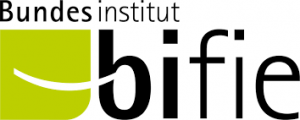Best Practices from Governments in developing policies for improved performance of (professional) higher education institutions
 The use of knowledge brokers is not very common in Higher Education (HE) policy making in European countries, as it occurs in an active way in higher education systems only in about one third of the countries. Knowledge broking is understood in broadly two different ways: in some countries (Belgium, both the French and Flemish Communities, Denmark, Germany, Estonia, France, Latvia and Slovenia), there are knowledge brokers within government education administrations that specialise in interpreting evidence for policymakers. The other type of knowledge broker is external, and includes various types of institutes and organisations. These can be found in the Czech Republic, Austria, the United Kingdom (England, Wales and Northern Ireland), Switzerland and Norway. Others have a mixed regime.
The use of knowledge brokers is not very common in Higher Education (HE) policy making in European countries, as it occurs in an active way in higher education systems only in about one third of the countries. Knowledge broking is understood in broadly two different ways: in some countries (Belgium, both the French and Flemish Communities, Denmark, Germany, Estonia, France, Latvia and Slovenia), there are knowledge brokers within government education administrations that specialise in interpreting evidence for policymakers. The other type of knowledge broker is external, and includes various types of institutes and organisations. These can be found in the Czech Republic, Austria, the United Kingdom (England, Wales and Northern Ireland), Switzerland and Norway. Others have a mixed regime.
 For example in Austria, the Federal Institute for Educational Research, Innovation and Development (BIFIE) serves both as a research agency and also as a knowledge broker.
For example in Austria, the Federal Institute for Educational Research, Innovation and Development (BIFIE) serves both as a research agency and also as a knowledge broker.
Sources:
Support Mechanisms for Evidence-based Policy-Making in Education’, Eurydice Report, EAC, 2017.
OECD


